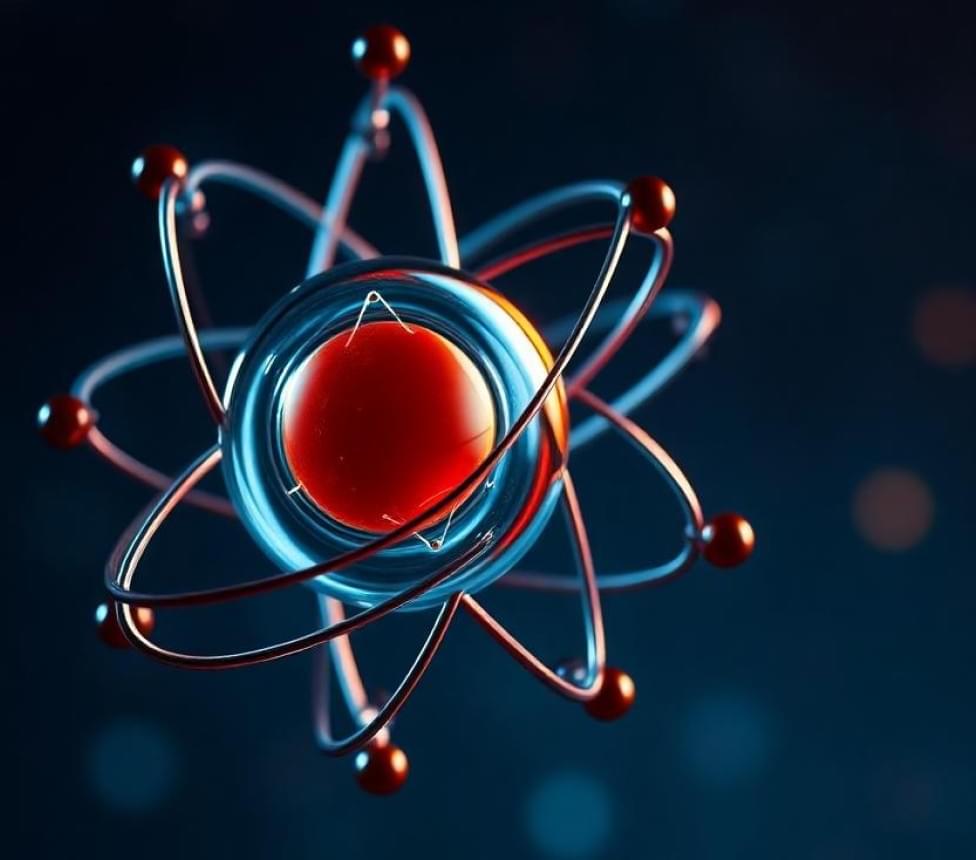A groundbreaking new method developed at the University of Osaka calculates the entropy of liquids using a non-empirical approach, requiring only the atomic species as input. The paper is published in the Journal of Physics: Condensed Matter.


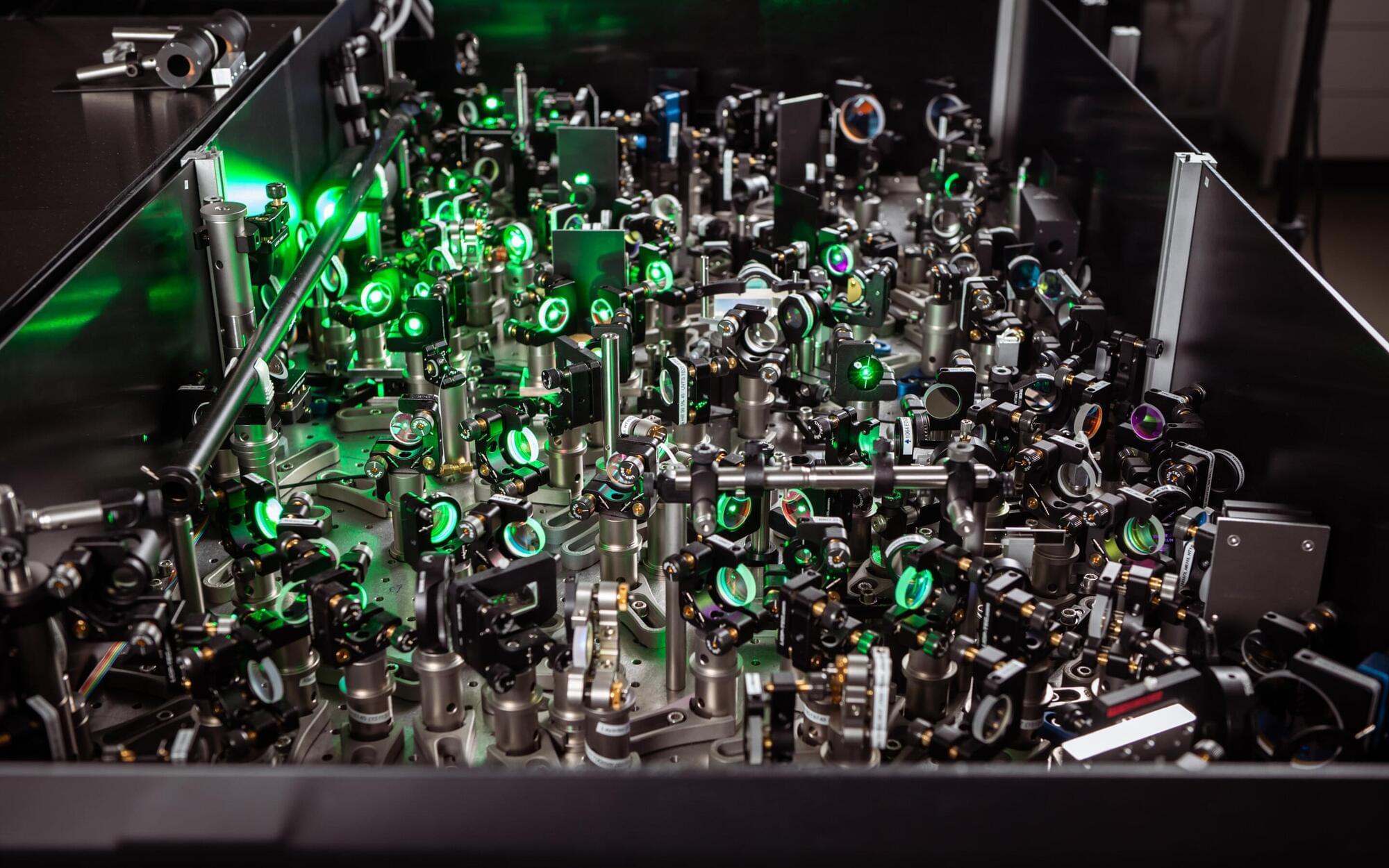
“The result was a huge surprise for us. No theory has ever predicted it,” says Davide Bossini.
Not only does the process work—it also has spectacular effects. By driving high-frequency magnon pairs via laser pulses, the physicists succeeded in changing the frequencies and amplitudes of other magnons—and thus the magnetic properties of the material—in a non-thermal way.
“Every solid has its own set of frequencies: electronic transitions, lattice vibrations, magnetic excitations. Every material resonates in its own way,” explains Bossini. It is precisely this set of frequencies that can be influenced through the new process.
Physicist and fusion researcher Eric Lerner presents a sweeping critique of the Big Bang theory and the standard model of cosmology at Demysticon 25. He builds on the foundations of plasma physics and the work of Nobel laureate Hannes Alfvén to outline an alternative cosmological framework rooted in known physical laws—gravity, nuclear fusion, and electromagnetic plasma behavior—rather than hypothetical concepts like dark matter, dark energy, or cosmic inflation. He explores how filamentary plasma structures may account for galaxy formation, how fusion research using dense plasma focus devices parallels cosmic processes, and how the cosmic microwave background may not be relic radiation from a singular origin. Merging astrophysics, plasma cosmology, and energy research, this talk reframes the origin and structure of the universe—and calls into question the prevailing narratives at the heart of modern theoretical physics.
PATREON
/ demystifysci.
PARADIGM DRIFT
https://demystifysci.com/paradigm-dri… Go! Introduction the Big Bang Debate 00:03:57 Eric Lerner’s Perspective on Cosmic Evolution 00:04:21 The Pinch Effect and Electrical Currents in Plasmas 00:10:27 Evolutionary Hierarchies and Cosmic Filaments 00:14:50 Interplay of Forces in Structure Formation 00:18:14 Evidence of Filaments Across Scales 00:25:04 Dynamics of Galaxy Formation and Star Development 00:29:08 Cosmic Microwave Background and Element Formation 00:30:29 The Formation and Properties of Early Galaxies 00:35:22 Energy Flows and the Cosmic Evolution Crisis 00:39:58 Plasma Focus Devices and Fusion Energy Research 00:41:16 Q&A Understanding Galaxy Components and Rotation 00:51:33 Q&A The Implications of Missing Gravity and Galaxy Dynamics 00:58:07 Q&A Gravitational Lensing and Mass Distribution 01:00:32 Q&A Lensing and Galactic Observations 01:02:04 Q&A Fractal Patterns in Cosmology #cosmology, #space, #galaxyformation, #gravitationalwaves, #cosmicstructures, #astrophysics, #fusionenergy, #magneticfields, #spacephysics, #electricuniverse, #criticalthinking #philosophypodcast, #sciencepodcast, #longformpodcast ABOUS US: Anastasia completed her PhD studying bioelectricity at Columbia University. When not talking to brilliant people or making movies, she spends her time painting, reading, and guiding backcountry excursions. Shilo also did his PhD at Columbia studying the elastic properties of molecular water. When he’s not in the film studio, he’s exploring sound in music. They are both freelance professors at various universities. PATREON: get episodes early + join our weekly Patron Chat https://bit.ly/3lcAasB MERCH: Rock some DemystifySci gear : https://demystifysci.myspreadshop.com… AMAZON: Do your shopping through this link: https://amzn.to/3YyoT98 DONATE: https://bit.ly/3wkPqaD SUBSTACK: https://substack.com/@UCqV4_7i9h1_V7h… BLOG: http://DemystifySci.com/blog RSS: https://anchor.fm/s/2be66934/podcast/rss MAILING LIST: https://bit.ly/3v3kz2S SOCIAL:
MUSIC:-Shilo Delay: https://g.co/kgs/oty671
00:00 Go! Introduction the Big Bang Debate.
00:03:57 Eric Lerner’s Perspective on Cosmic Evolution.
00:04:21 The Pinch Effect and Electrical Currents in Plasmas.
00:10:27 Evolutionary Hierarchies and Cosmic Filaments.
00:14:50 Interplay of Forces in Structure Formation.
00:18:14 Evidence of Filaments Across Scales.
00:25:04 Dynamics of Galaxy Formation and Star Development.
00:29:08 Cosmic Microwave Background and Element Formation.
00:30:29 The Formation and Properties of Early Galaxies.
00:35:22 Energy Flows and the Cosmic Evolution Crisis.
00:39:58 Plasma Focus Devices and Fusion Energy Research.
00:41:16 Q&A Understanding Galaxy Components and Rotation.
00:51:33 Q&A The Implications of Missing Gravity and Galaxy Dynamics.
00:58:07 Q&A Gravitational Lensing and Mass Distribution.
01:00:32 Q&A Lensing and Galactic Observations.
01:02:04 Q&A Fractal Patterns in Cosmology.
#cosmology, #space, #galaxyformation, #gravitationalwaves, #cosmicstructures, #astrophysics, #fusionenergy, #magneticfields, #spacephysics, #electricuniverse, #criticalthinking #philosophypodcast, #sciencepodcast, #longformpodcast.
ABOUS US: Anastasia completed her PhD studying bioelectricity at Columbia University. When not talking to brilliant people or making movies, she spends her time painting, reading, and guiding backcountry excursions. Shilo also did his PhD at Columbia studying the elastic properties of molecular water. When he’s not in the film studio, he’s exploring sound in music. They are both freelance professors at various universities.

In a new Nature Physics paper, researchers report the first experimental observation of the transverse Thomson effect, a key thermoelectric phenomenon that has eluded scientists since it was predicted over a century ago.
For over a century, thermoelectric effects have formed the foundation of how physicists understand the link between heat and electricity. Our knowledge of how heat and electricity interact within materials is rooted in the Seebeck, Peltier, and Thomson effects, all identified during the 1800s.
The Thomson effect causes volumetric heating or cooling when an electric current and a temperature gradient flow in the same direction through a conductor.
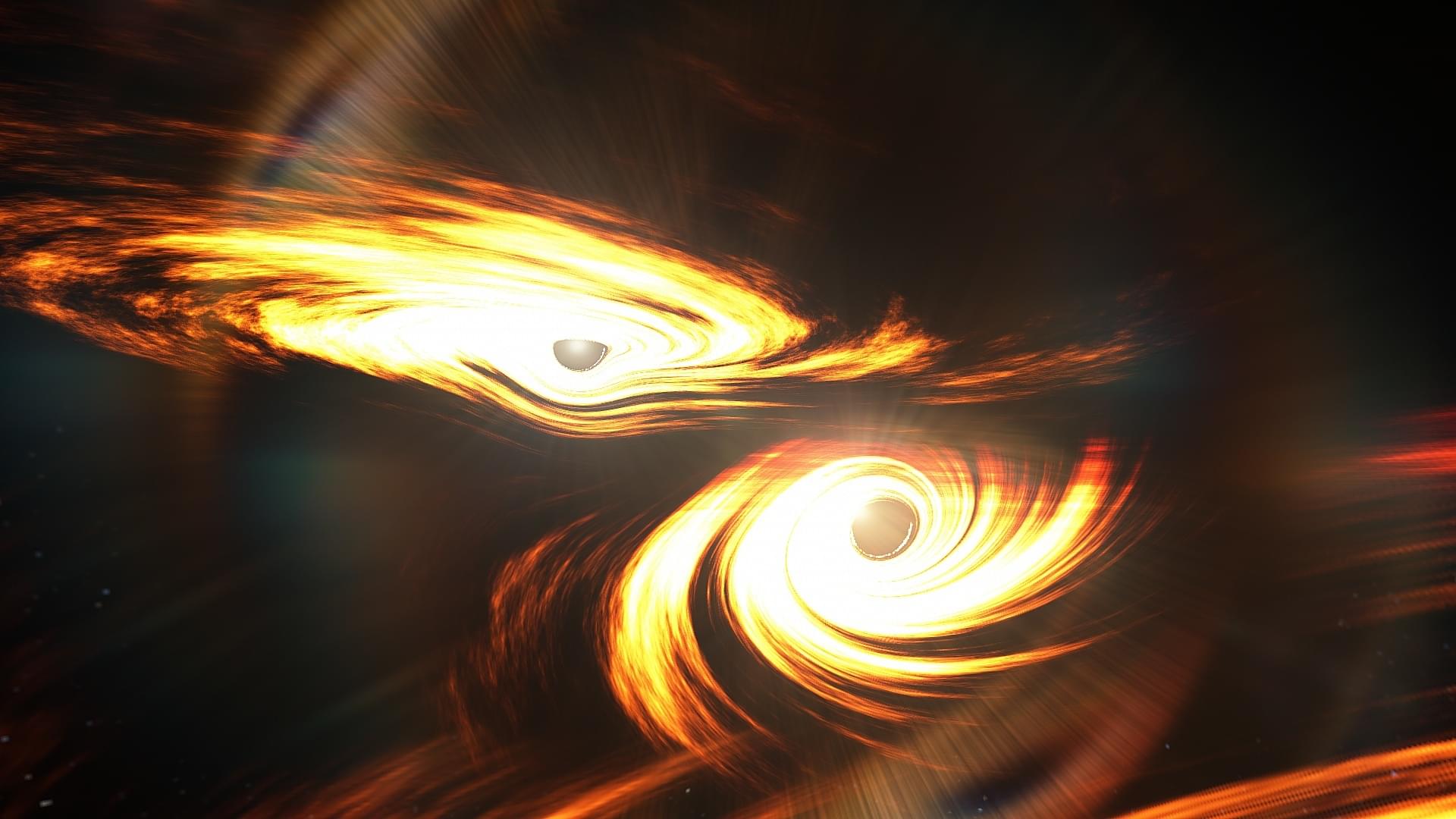
These black holes were whirling at speeds nearly brushing the limits of Einstein’s theory of general relativity, forcing researchers to stretch existing models to interpret the signal.
Breathtaking images of gamma-ray flare from supermassive black hole M87
“Black holes this massive are forbidden by standard stellar evolution models,” says Professor Mark Hannam from Cardiff University. “One explanation is that they were born from past black hole mergers, a cosmic case of recursion.”
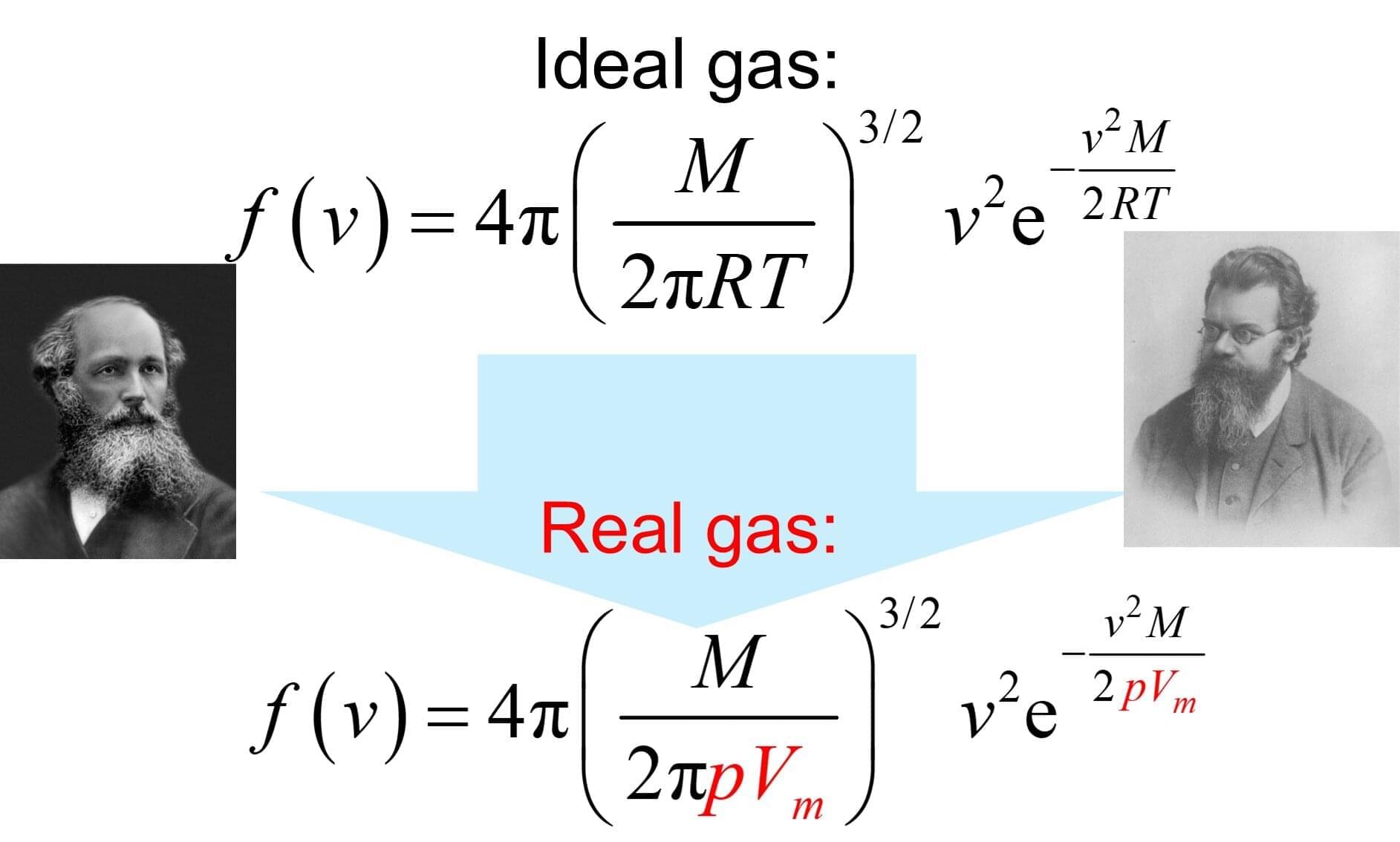
The Maxwell–Boltzmann distribution describes the probability distribution of molecular speeds in a sample of an ideal gas. Introduced over 150 years ago, it is based on the work of Scottish physicist and mathematician James Clerk Maxwell (1831–1879) and Austrian mathematician and theoretical physicist Ludwig Boltzmann (1844–1906).
Today, the distribution and its implications are commonly taught to undergraduate students in chemistry and physics, particularly in introductory courses on physical chemistry or statistical mechanics.
In a recent theoretical paper, I introduced a novel formula that extends this well-known distribution to real gases.

The reason these aerospike style engines haven’t been used more in the past is they’re difficult to design and make. While generally thought of as having the potential to be more efficient, they also require intricate cooling channels to help keep the spike cool. CEO and Co-Founder of LEAP 71, Josefine Lissner, credits the company’s computational AI, Noyron, with the ability to make these advancements.
“We were able to extend Noyron’s physics to deal with the unique complexity of this engine type. The spike is cooled by intricate cooling channels flooded by cryogenic oxygen, whereas the outside of the chamber is cooled by the kerosene fuel.” Said Lissner “I am very encouraged by the results of this test, as virtually everything on the engine was novel and untested. It’s a great validation of our physics-driven approach to computational AI.”
Lin Kayser, Co-Founder of LEAP 71, also believes the AI was paramount in achieving the complex design, explaining “Despite their clear advantages, Aerospikes are not used in space access today. We want to change that. Noyron allows us to radically cut the time we need to re-engineer and iterate after a test and enables us to converge rapidly on an optimal design.”
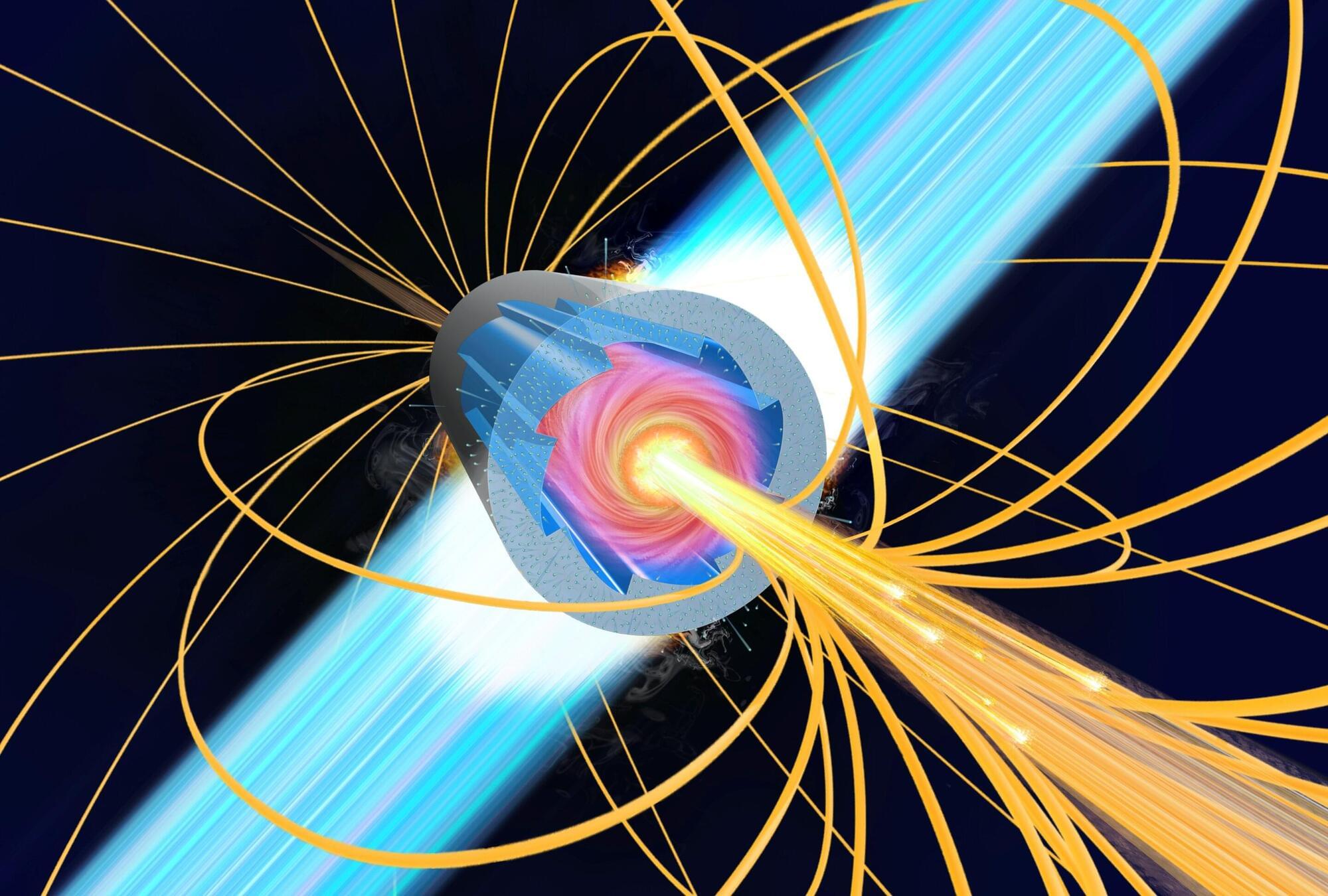
Researchers at The University of Osaka have developed a novel method for generating ultra-high magnetic fields via laser-driven implosions of blade-structured microtubes. This method achieves field strengths approaching one megatesla—a breakthrough in compact, high-field plasma science.
Ultrastrong magnetic fields approaching the megatesla regime—comparable to those found near strongly magnetized neutron stars or astrophysical jets —have now been demonstrated in theory using a compact, laser-driven setup.
A team led by Professor Masakatsu Murakami at The University of Osaka has proposed and simulated a unique scheme that uses micron-sized hollow cylinders with internal blades to achieve these field levels. The research is published in the journal Physics of Plasmas.
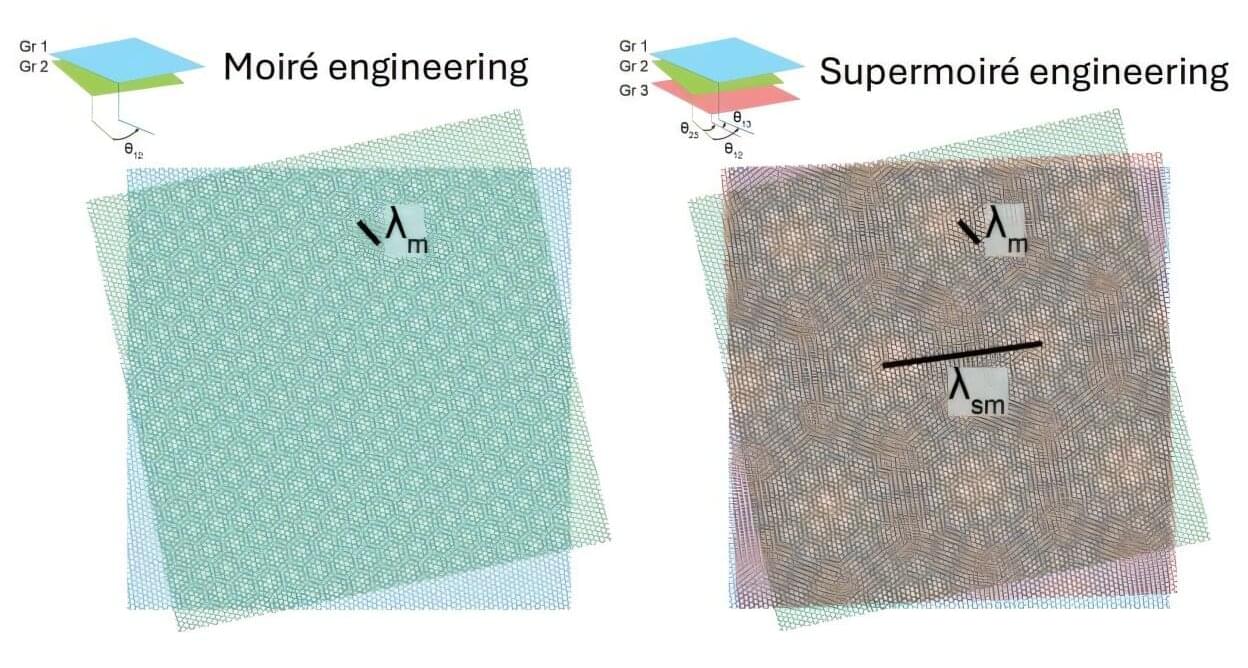
A few years ago, physicists were surprised to learn that stacking and subtly twisting two atomically thin layers of an electronic material like graphene creates a pattern that changes the material’s properties and can even turn it into a superconductor. This superimposed grid, like what would emerge if two window screens were laid slightly askew, is called a moiré pattern.
But why stop there? It turns out adding a third layer, with each layer twisted at slightly different angles, produces even more complex interferences known as supermoiré patterns (aka moiré of moiré). The supermoiré pattern induces profound changes in how electrons move through the material, but until recently, scientists had had trouble measuring exactly what changes occur and why.
Now, applied physicists in the Harvard John A. Paulson School of Engineering and Applied Sciences (SEAS) have used a specially designed microscope to probe the properties of supermoiré patterns in trilayer graphene to an extent that was never possible before. Using their microscope, they saw many new states of matter in which electrons would get stuck or form unusual groups, leading to changes in the entire system’s electronic behavior and opening doors to studying layered materials with precisely controllable properties.
